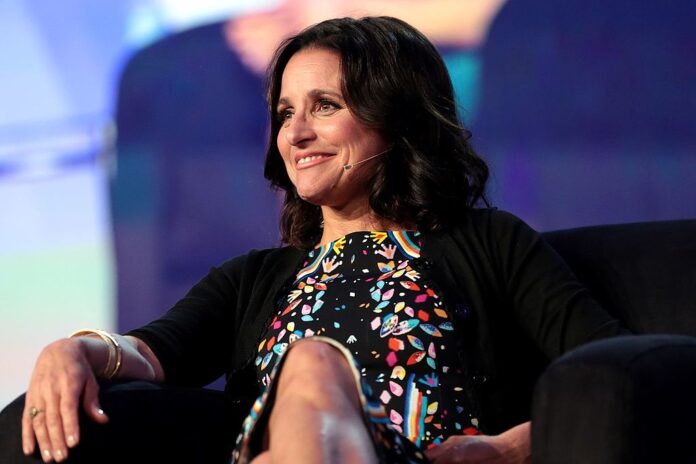The ‘Veep’ star addresses the importance of sensitivity in comedy and the real threats to artistic freedom
Julia Louis-Dreyfus has weighed in on the recent controversy sparked by her former co-star Jerry Seinfeld’s critique of political correctness in comedy. The actress, best known for her role as Elaine on the iconic sitcom “Seinfeld,” offered a thoughtful perspective during her appearance on The Interview with the New York Times.
“I think to have an antenna about sensitivities is not a bad thing,” Louis-Dreyfus remarked. “It doesn’t mean that all comedy goes out the window as a result. When I hear people starting to complain about political correctness — and I understand why people might push back on it — but to me that’s a red flag, because it sometimes means something else. I believe being aware of certain sensitivities is not a bad thing. I don’t know how else to say it.”
Her comments come in response to Seinfeld’s recent statements criticizing the influence of the “extreme left” and “PC crap” on TV comedy. Seinfeld argued that the heightened sensitivity around offending people has negatively impacted the genre. Louis-Dreyfus, however, offered a nuanced view on the matter.
“Political correctness, insofar as it equates to tolerance, is obviously fantastic,” she explained. “And of course, I reserve the right to boo anyone who says anything that offends me, while also respecting their right to free speech, right? But the bigger problem — and I think the true threat to art and the creation of art — is the consolidation of money and power. All this siloing of studios and outlets and streamers and distributors — I don’t think it’s good for the creative voice. So that’s what I want to say in terms of the threat to art.”
Louis-Dreyfus emphasized that while political correctness may shape how art is created today, it does not necessarily hinder it. Instead, she pointed to the economic and corporate consolidation within the entertainment industry as a more significant threat to artistic freedom and creativity.
When asked whether new sensitivities enhance comedy, Louis-Dreyfus refrained from making a definitive judgment. “I can’t judge if it’s better or not. I just know that the lens through which we create art today — and I’m not going to just specify it to comedy, it’s also drama — it’s a different lens. It really is. Even classically wonderful, indisputably great films from the past are riddled with attitudes that today would not be acceptable. So I think it’s just good to be vigilant.”
Louis-Dreyfus’s reflections highlight the evolving nature of comedy and art. Her stance underscores the importance of being mindful of societal changes and sensitivities while also recognizing broader issues that may impact the creative process. By distinguishing between the roles of political correctness and corporate consolidation, she provides a comprehensive view on the challenges facing the entertainment industry today.
As both Louis-Dreyfus and Seinfeld continue to influence the comedy landscape, their differing views reflect a broader debate within the industry. The discussion around political correctness and artistic freedom remains a crucial conversation as creators navigate the balance between sensitivity and creativity.
